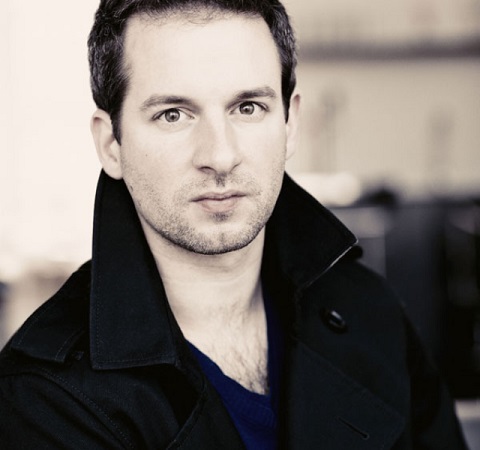 United Kingdom Bach and Mozart: Bertrand Chamayou (piano), Philharmonia Orchestra / Philippe Herreweghe (conductor), Royal Festival Hall, Southbank Centre, London, 21.2.2019. (AS)
United Kingdom Bach and Mozart: Bertrand Chamayou (piano), Philharmonia Orchestra / Philippe Herreweghe (conductor), Royal Festival Hall, Southbank Centre, London, 21.2.2019. (AS)

Bach – Suite No.3 in D, BWV1068
Mozart – Piano Concerto No.23 in A K488; Symphony No.41 in C K551, Jupiter
The Flemish conductor Philippe Herreweghe is a most remarkable musician. For nearly 50 years he has specialised with great success in the music of Bach and what is usually described as early music, being a pioneer in the use of groups playing original instruments. But he has also performed and recorded music by the Austro-German Romantics with symphony orchestras, and his interests encompass Schoenberg and late Stravinsky.
Over the last 20 or so years orchestral music by Bach has seldom been played in the Royal Festival Hall, since major orchestras have retreated from it in the face of original instrument opposition – in fact the description of Bach’s suites as “orchestral” music no doubt causes period performance champions to wince.
So, the prospect of hearing a specialist in period performance perform Bach with a modern symphony orchestra was an intriguing prospect. Would he pare down the ensemble to a handful of players struggling to eliminate vibrato from their playing? Well no, not at all. A string section of 44 players settled in their seats with the solo wind group and, whisper if you dare, no continuo was even in evidence.
What followed was sheer delight. Naturally Herreweghe took the opening Ouverture at a brisk pace, but rhythms were buoyant, textures were clean and there was not a hint of overdrive. Perhaps he would take the following Air in a dry, passionless fashion to conform with original performance practice, but no, it was beautifully and charmingly released at a nice, flowing tempo. The remaining dance movements really did dance, very affectingly, and all credit to Herreweghe for adapting his approach to the music in a concert hall context while still retaining its baroque style with integrity.
Bertrand Chamayou is not especially known as a performer of Mozart’s music, being more renowned for his work in romantic repertoire and as a champion of twentieth- and twenty-first- century scores. His approach to Mozart’s A major Concerto was not in any way monumental, but more intimate and conversational, pleasingly clear-cut and immaculately stylish. In the central Adagio he did not linger, but kept the musical argument moving forward, charmingly and beautifully with an appropriate hint of sadness. The finale, taken quite quickly but with no sense of hurry, had a quality of high spirits tempered with a certain classical restraint. All in all, it was a very interesting and effective performance. Herreweghe and the Philharmonia were acutely responsive partners.
In a way Herreweghe’s direction of the Jupiter Symphony had similar qualities to that of his concerto soloist, in that he didn’t aim for profundity of feeling, but preserved the work’s classical identity. Throughout the work his tempi were brisk, but not hurried. He took all the repeats in every movements, which had the effect of making the structure of the symphony even more impressive than it usually is. It is a big work indeed, and we can only lament that Mozart’s early death prevented his development as a symphonic composer into territory that is, alas, unimaginable. Particularly of note in Herreweghe’s insightful performance was his lovely, songlike projection of the second Andante cantabile movement and his handling of the finale’s intricate structures was masterful, and brilliantly put across to the audience.
This was a most uplifting concert.
Alan Sanders
The first two movements of the piano concerto were too fast!
I hugely enjoyed the Bach & the Concerto. The Jupiter symphony (other than 1st mvt) was far too fast – robbing the piece of it’s monumentality. Would have preferred slower tempi & repeats omitted. Great playing by Philharmonia though.
I agree with the reviewer when it comes to wonderful conducting by Herreweghe. But am I the only person in the audience who was disconcerted (no pun intended) by a soloist at this level needing to have the score barely concealed on the piano strings and regularly flicking pages?